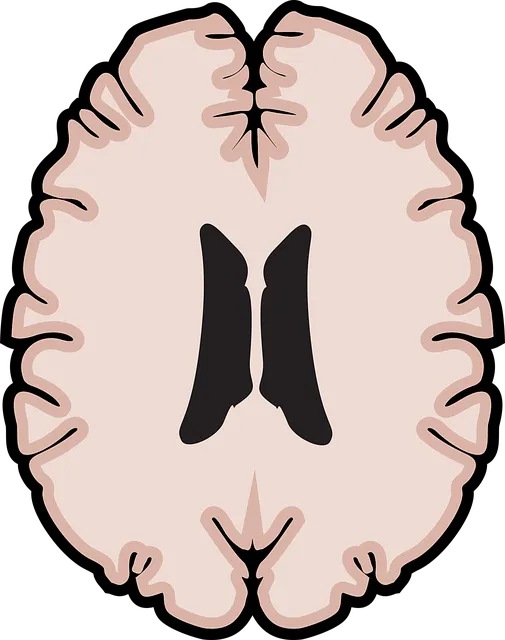Wheat Ridge Kaiser Permanente's behavioral health services leverages comprehensive data analysis, combining demographic, diagnostic, and patient feedback insights, to identify trends like growing anxiety or depression concerns. Their advanced techniques, including machine learning, cultural sensitivity, and evidence-based programs like the Mental Wellness Podcast Series, personalize treatment plans and enhance diagnosis accuracy. This data-driven approach optimizes patient outcomes, advocates for integrated services, and informs mental health policy discussions, ultimately improving overall community mental wellness.
Mental health data analysis is a powerful tool for understanding and improving patient care. This comprehensive guide explores the process, from acquiring valuable insights through data collection at institutions like Wheat Ridge Kaiser Permanente Behavioral Health Services, to leveraging advanced techniques for efficient analysis. We delve into interpreting findings, highlighting their impact on service improvement and enhancing patient outcomes. By harnessing data’s potential, healthcare providers can offer more targeted, effective care tailored to individual needs.
- Understanding Mental Health Data: A Comprehensive Overview
- The Role of Wheat Ridge Kaiser Permanente Behavioral Health Services in Data Collection
- Advanced Techniques for Efficient Data Analysis
- Interpreting Findings: Implications for Service Improvement and Patient Care
Understanding Mental Health Data: A Comprehensive Overview

Understanding Mental Health Data involves a deep dive into the complex landscape of human experiences and behaviors related to psychological well-being. At Wheat Ridge Kaiser Permanente behavioral health services, professionals collect and analyze various data points to gain insights into mental wellness trends among their population. This includes demographic information, diagnosis codes, treatment protocols, patient engagement metrics, and even qualitative feedback from clients.
By employing evidence-based methods and tools, such as Compassion Cultivation Practices designed to reduce burnout prevention, healthcare providers can interpret these datasets to identify patterns and correlations. For instance, analyzing trends in mental health diagnoses over time may reveal growing concerns about specific conditions like anxiety or depression. This knowledge is crucial for tailoring interventions and services, ensuring that resources are allocated effectively to address the most pressing mental wellness issues within their community, ultimately enhancing overall care delivery.
The Role of Wheat Ridge Kaiser Permanente Behavioral Health Services in Data Collection

Wheat Ridge Kaiser Permanente Behavioral Health Services plays a pivotal role in mental health data collection, contributing significantly to our understanding of various psychological conditions and their treatment outcomes. The organization’s dedicated team collects and analyzes a diverse range of data points, from patient demographics and initial assessment results to treatment modalities and final outcomes. This comprehensive approach ensures that the data reflects not only individual experiences but also broader trends within the mental health landscape.
Focusing on both quantitative and qualitative data, Wheat Ridge Kaiser Permanente Behavioral Health Services enhances self-esteem improvement and promotes mental wellness through culturally sensitive practices. By considering the diverse backgrounds, beliefs, and preferences of patients, they tailor their services to address specific needs, ensuring that care is not only effective but also respectful and inclusive. This commitment to Cultural Sensitivity in Mental Healthcare Practice is integral to achieving positive outcomes for a broad spectrum of individuals seeking support.
Advanced Techniques for Efficient Data Analysis

In the realm of mental health data analysis, advanced techniques play a pivotal role in efficient and effective service delivery, such as those offered by Wheat Ridge Kaiser Permanente behavioral health services. Utilizing sophisticated analytics tools, healthcare professionals can uncover intricate patterns and insights hidden within vast datasets. These methods go beyond traditional statistical analysis, employing machine learning algorithms to predict patient outcomes, identify at-risk populations, and personalize treatment plans. By leveraging these advanced techniques, mental health care providers can enhance the accuracy of diagnoses and improve overall patient care.
Cultural sensitivity in mental healthcare practice is seamlessly integrated into these data-driven approaches. Recognizing the importance of tailoring interventions to diverse cultural backgrounds, analysts employ culturally responsive methods that ensure inclusivity. This involves adapting assessment tools, therapy modalities, and communication strategies to resonate with various communities. Additionally, focusing on depression prevention through evidence-based programs, such as those featured in the Mental Wellness Podcast Series Production, data analysis can identify early warning signs and facilitate timely interventions, ultimately contributing to improved mental wellness outcomes.
Interpreting Findings: Implications for Service Improvement and Patient Care

When analyzing data from Wheat Ridge Kaiser Permanente behavioral health services, interpreters must consider a multifaceted approach to ensure positive outcomes for patients. The insights derived from this analysis have significant implications for service improvement and patient care. By identifying trends and patterns in mental health data, healthcare providers can refine their strategies, tailor interventions, and enhance overall treatment effectiveness.
For instance, an in-depth Mental Health Policy Analysis and Advocacy might reveal a growing need for integrated services combining traditional therapy with practices like Mindfulness Meditation. This knowledge could drive advocacy efforts to promote such approaches within the organization and beyond, ultimately benefiting patients’ mental well-being. Such insights not only guide service enhancements but also contribute to broader Mental Health Policy discussions, fostering a more holistic care environment.
Mental health data analysis is a powerful tool for improving patient care. As highlighted by the contributions of Wheat Ridge Kaiser Permanente Behavioral Health Services, efficient collection and interpretation of mental health data can lead to significant service improvements. By leveraging advanced techniques, healthcare professionals can gain valuable insights from these datasets, ultimately enhancing patient outcomes. This comprehensive approach, involving understanding data, robust collection methods, and insightful interpretation, is key to navigating the complexities of mental health care in the modern era.






